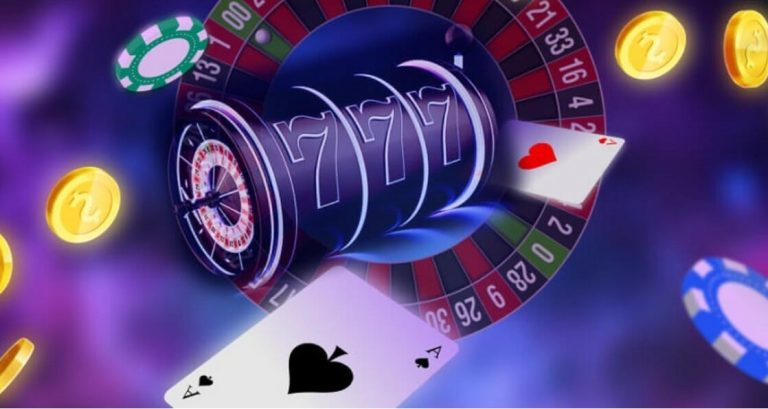When a casino is new, especially one that markets itself aggressively as a “brand‑new launch,” the risk tends to be higher because:
-
The operator may have less established track record or reputation.
-
Licensing, regulation and auditing may not yet be fully transparent or trusted.
-
They may rely heavily on big bonuses or offers to attract deposits, possibly with hidden terms.
-
They might shutter quickly if things go wrong, making it hard for players to resolve issues.
Given this, it’s especially important that you treat new online casinos with a degree of caution—while they can be perfectly legitimate, you should verify that they meet the same high standards you’d expect from older, well‑known sites.
Key checks before registering and depositing
Here are the major factors to check when evaluating a casino site:
1. Licensing & regulation
Ensure the site holds a valid licence issued by a reputable regulator.
-
Look for regulators such as UK Gambling Commission (UKGC), Malta Gaming Authority (MGA), Gibraltar Regulatory Authority, etc.
-
On the casino’s website you’ll usually find the licence number (often in the footer) and possibly a link to the regulator’s site for verification.
-
If licensing info is missing, fake, or not easily verified—red flag.
2. Website security & encryption
You’re sharing personal and financial information, so the site must be secure.
-
The URL should begin with https:// and show a padlock icon.
-
SSL/TLS encryption should be present and working.
-
Other good signs: two‑factor authentication (2FA) offered, account verification procedures, secure payment gateways.
3. Payment methods & withdrawal policy
A legitimate operator will make both deposits and withdrawals with reasonable transparency.
-
They should support trusted payment methods (credit/debit cards, e‑wallets like Skrill/Neteller, bank transfers) rather than only obscure methods.
-
Withdrawal terms should be clear: what are limits, processing times, fees? Excessive delays or hidden fees may signal risk.
-
If a casino only accepts odd or untraceable payment methods, be very cautious.
4. Game fairness & software providers
Even the best website won’t matter if the games are rigged.
-
Check for independent audit seals (e.g., eCOGRA, iTech Labs) verifying the Random Number Generator (RNG) and fairness.
-
Trusted software providers (NetEnt, Microgaming, Evolution, etc) are a positive sign. New casinos that rely solely on unknown providers may carry higher risk.
5. Terms & conditions / bonuses
Bonuses may look attractive—but the trap is often in the fine print.
-
Wagering requirements, game restrictions, bonus expiry, withdrawal conditions: all should be clear and reasonable.
-
If the bonus seems too good to be true, with huge amounts attached but little transparency—be suspicious.
6. Reputation, customer support & user feedback
Even new sites will have some feedback (or lack thereof).
-
Try the customer support before depositing: send a question, evaluate how quickly they respond and how well.
-
Look for player reviews, forum posts, independent review sites. Negative patterns—especially around withdrawals—are warning signs.
-
Beware of generic 5‑star reviews with no substance; some scammers bolster reviews artificially.
Red flags you should never ignore
When evaluating a new online casino, the following warning signals deserve serious attention:
-
No visible licence, or licence from a little‑known/unverifiable regulator.
-
Website lacks “https” padlock; security certificate expired or missing.
-
Very large bonus offers with minimal explanation and massive wagering requirements.
-
Withdrawal delays: you deposit, you play, you win—but then withdrawals are blocked or drag on for days/weeks with excuses.
-
Customer support is non‑responsive, only via email, or no live chat/phone available.
-
Games from unknown or untrusted providers; no audit seals or fairness certification.
-
Payment methods that force you into unusual channels, or insist on deposit only, with no clear rules for withdrawal.
-
Website looks poorly designed, many typos/grammar errors, unrealistic claims (e.g., “We pay out every player immediately!”)
-
You find player complaints: “I won, but I can’t withdraw”, “They froze my account”, “Bonus terms changed after I signed up”.
Extra safety practices for your account
Here are additional steps you can take to protect yourself further:
-
Use a unique and strong password for each casino account—avoid re‑using passwords.
-
Enable two‑factor authentication (2FA) if the casino offers it.
-
Avoid gambling via public Wi‑Fi; use a secure network or consider a VPN if accessing from insecure connection.
-
Keep your browser and security software up to date.
-
Set your own deposit/withdrawal limits (if the casino provides such tools) and ensure you gamble responsibly.
-
Keep records of your transactions, communications with support, and screenshots of key pages (like terms & conditions, licences) if needed later.
Balancing the excitement with caution
It’s entirely possible to enjoy the benefits of new online casinos—fresh welcome bonuses, updated game libraries, improved user interfaces—safely. The trick is not to skip the due diligence. By combining careful research (licensing, payments, fairness), realistic expectations (bonuses aren’t guaranteed money), and smart account security, you increase your odds of having a fun and trouble‑free experience.
Summary checklist: Quick “safe‑site” scan before you deposit
| Checkpoint | What to look for |
|---|---|
| Licence | Visible, from a recognised regulator and verifiable. |
| Website security | “https://”, padlock icon, 2FA offered. |
| Payments | Trusted methods, transparent withdrawals, reasonable fees/times. |
| Games & providers | Recognised software, audit seals, fair RNG. |
| Bonuses & T&Cs | Clear terms, reasonable wagering, readable small print. |
| Support & reputation | Responsive support, real user feedback, no major complaints. |
| Red flags | Unrealistic promises, hidden terms, unclear licensing/payment methods. |
When you see a new online casino, treat it with respect but with extra caution. Do the homework, verify the credentials, trust your instincts—and if something doesn’t feel right, move on. The safer approach today saves the headache tomorrow.

